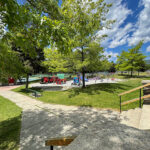Home »

City asks employees for vote on last offer
The City of Kimberley and the United Steelworkers Local 1-405 met for a third time yesterday (August 9) with Labour Relations Board mediator Grant MacArthur. The Union declared an impasse after the first 10 days of bargaining, and a further four days has been spent with the provincially-appointed mediator.
 Unable to reach an agreement through mediation and with the union rejecting the city’s last offer, the city has asked for a vote by the employees to accept or reject the city’s last offer. If the employees’ vote favours acceptance of the last offer, the terms of the last offer will become the new collective agreement between the parties. The city will be providing copies of the complete offer directly to the employees, with a provincially-supervised election process to follow, it outlined in a press release this morning (August 10).
Unable to reach an agreement through mediation and with the union rejecting the city’s last offer, the city has asked for a vote by the employees to accept or reject the city’s last offer. If the employees’ vote favours acceptance of the last offer, the terms of the last offer will become the new collective agreement between the parties. The city will be providing copies of the complete offer directly to the employees, with a provincially-supervised election process to follow, it outlined in a press release this morning (August 10).
One of the major stumbling blocks in negotiations has been the S.E.S. Job Evaluation System, which the city views as a failed experiment leading to inequity between departments. The current job evaluation system compares positions internally, but there are no comparisons to other municipalities. The union is seeking to have Aquatic Centre positions run through the S.E.S. system, which would result in significantly higher wage costs to run the aquatic centre.
As a substitute to the job evaluation system, the city has offered a wage grid based off of the results of the job evaluation system, and has offered to meet with the union to discuss a rate of pay for any new or significantly revised jobs.
The city’s last offer consists of varying wage increases to all employees. The city has offered an increase of 1.5% per year for four years to the majority of its employees. After surveying 20 similar- sized municipalities, the city has discovered that the parks and recreation staff are paid four per cent above the municipal average and therefore are only offering a one per cent increase in this department.
The engineering department was determined to be nine per cent below average, and the building inspector was being paid 18% less than the municipal average. In order to be able to compete to attract and retain these positions, the city has offered greater increases to reflect market realities. The city was unable to fill the building inspector position for several months, which resulted in delays to new construction.
The city has offered to extend Special Vacation to the six permanent aquatic centre staff. The union also wants this benefit extended to current seasonal and casual employees, in the event that they become permanent employees. The Special Vacation benefit consists of an extra 15 days of vacation for every five years of service, on top of the annual vacation entitlements. The city’s position is that the Special Vacation is no longer financially sustainable, and would see it phased out while not affecting any current permanent employees’ vacation benefits.
The city has offered enhancements to what it considers to be an already generous benefits package, which costs the city 35% on top of wages. Amongst the benefit improvements are an increase to the health spending account (from $150 to $200 per year), a 50% discount for aquatic centre family passes, coverage for white fillings in our dental plan, and the ability to use a sick day for bereavement leave.
Unable to settle on an interpretation of the training system proposed in a letter of understanding in 2013, the city has proposed reverting back to the previous training system. The union is interpreting the letter of understanding as recognition for all hours worked by an operator, rather than recognition for hours of training on the equipment. The city is focused on training on specific equipment for the purposes of increased safety and efficiency.
The bargaining mandate set by council seeks to strike a balance between the accountability to residential and businesses taxpayers, the city’s $73 million infrastructure deficit, and what council sees as a fair offer to the employees.
In the event of a labour disruption, management staff will be working to ensure public safety and to provide the best possible service under difficult circumstances.
City of Kimberley







